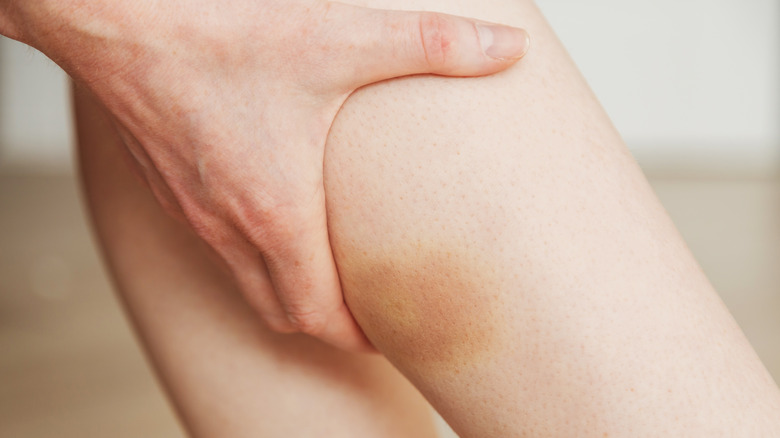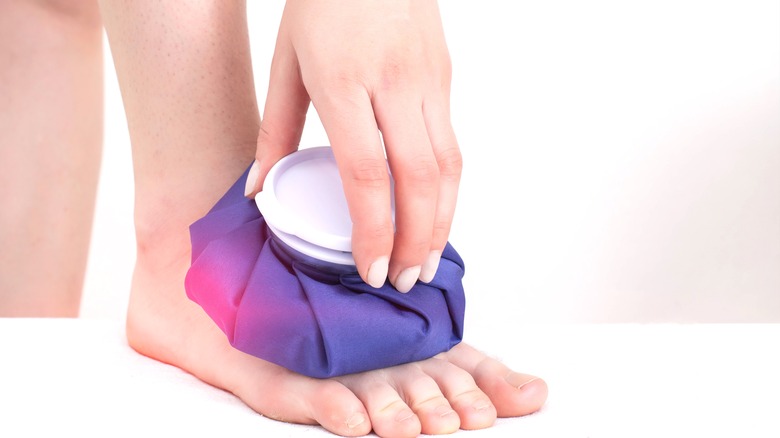Here's One Reason It Might Look Like Your Bruise Is Spreading
Overexposure to sunlight, vitamin deficiencies, natural aging, or eating blood-thinning foods can all make us more susceptible to bruising (via Byrdie). From the time a bruise first emerges to when it fully heals, the surrounding skin can go through a vast array of color changes from red to blue, purple, green, yellow, brown, and more, per WebMD.
Most often caused by physical injury, a bruise develops as a result of trauma that breaks the blood vessels below the skin (via WebMD). While initially tender, the affected area generally heals within two weeks' time, although The Ledger reports healing time could be as long as four weeks. As it disappears, the bruise will get lighter in color and smaller in size. During this time, however, if you've ever noticed your bruise appears to be growing in size, it might cause you to question whether your bruise is properly healing as it should be.
How to prevent a bruise from spreading
No fear — a bruise that appears to be spreading is generally not cause for concern, according to The Ledger. Rather, it's relatively common. A bruise that looks like it's traveling from one area of the body to another can be attributed to the combined efforts of healing and gravity. As a response to injury, the bruised area will initially swell. As the body mends itself, the swelling disperses, giving the appearance of a larger bruise. However, this is a normal byproduct of the body's natural healing process. Additionally, the shape of a bruise can also be influenced by the natural pull of gravity. This is particularly evident in extremities such as the legs, where a bruise may make its way along the leg to the ankle.
To help keep a bruise contained, experts at healthcare organization Scripps suggest repeatedly icing the area with a cold compress on and off for periods of 15 to 20 minutes for the first two days following its appearance to reduce swelling. Additionally, if you've bruised areas of the arm or leg, try elevating the extremity above your heart to lessen the chances of spreading. However, unexplained or worsening bruising should always be looked at by a doctor to assess for underlying health conditions.


